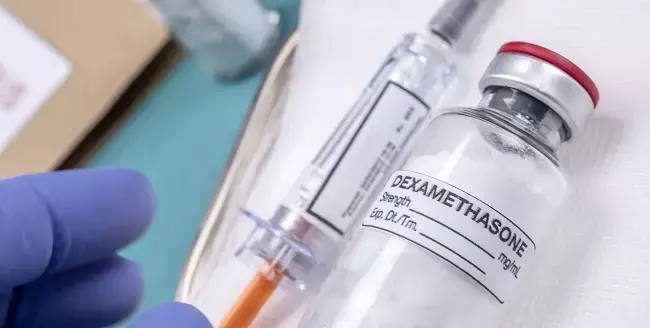- Home
- Medical news & Guidelines
- Anesthesiology
- Cardiology and CTVS
- Critical Care
- Dentistry
- Dermatology
- Diabetes and Endocrinology
- ENT
- Gastroenterology
- Medicine
- Nephrology
- Neurology
- Obstretics-Gynaecology
- Oncology
- Ophthalmology
- Orthopaedics
- Pediatrics-Neonatology
- Psychiatry
- Pulmonology
- Radiology
- Surgery
- Urology
- Laboratory Medicine
- Diet
- Nursing
- Paramedical
- Physiotherapy
- Health news
- Fact Check
- Bone Health Fact Check
- Brain Health Fact Check
- Cancer Related Fact Check
- Child Care Fact Check
- Dental and oral health fact check
- Diabetes and metabolic health fact check
- Diet and Nutrition Fact Check
- Eye and ENT Care Fact Check
- Fitness fact check
- Gut health fact check
- Heart health fact check
- Kidney health fact check
- Medical education fact check
- Men's health fact check
- Respiratory fact check
- Skin and hair care fact check
- Vaccine and Immunization fact check
- Women's health fact check
- AYUSH
- State News
- Andaman and Nicobar Islands
- Andhra Pradesh
- Arunachal Pradesh
- Assam
- Bihar
- Chandigarh
- Chattisgarh
- Dadra and Nagar Haveli
- Daman and Diu
- Delhi
- Goa
- Gujarat
- Haryana
- Himachal Pradesh
- Jammu & Kashmir
- Jharkhand
- Karnataka
- Kerala
- Ladakh
- Lakshadweep
- Madhya Pradesh
- Maharashtra
- Manipur
- Meghalaya
- Mizoram
- Nagaland
- Odisha
- Puducherry
- Punjab
- Rajasthan
- Sikkim
- Tamil Nadu
- Telangana
- Tripura
- Uttar Pradesh
- Uttrakhand
- West Bengal
- Medical Education
- Industry
IV Dexamethasone after anesthesia induction reduces Postoperative Ileus and pain in IBD: Study

Inflammatory bowel disease (IBD) refers to two conditions: ulcerative colitis and Crohn's disease. Excessive postoperative inflammatory response is common after surgery for inflammatory bowel disease (IBD), and it may be linked to an increased risk of postoperative ileus.
A new study has discovered that a single intravenous 8-mg dose of dexamethasone given immediately after anesthesia induction reduced the incidence of prolonged postoperative ileus, the intensity of postoperative pain, and the length of stay for inflammatory bowel disease patients undergoing elective surgery. This study was conducted by Tenghui Zhang and team, results of which are published in Journal of Inflammatory Bowel Diseases on 2nd December, 2021.
The purpose of this study was to look at the role of perioperative dexamethasone in postoperative ileus after inflammatory bowel disease surgery. During the induction of anesthesia, patients undergoing elective inflammatory bowel disease surgery were randomly assigned to either an intravenous 8-mg dose of dexamethasone (n = 151) or a placebo (n = 151). The incidence of prolonged postoperative ileus was the primary outcome. The incidence of reported nausea or vomiting, the time to first passage of flatus and stool, GI-2 recovery, postoperative pain, length of stay, and surgical complications were all secondary outcomes.
The findings of this study were:
1. When compared to controls, patients who received dexamethasone had a lower incidence of prolonged postoperative ileus, a shorter time to first passage of stool, GI-2 recovery, a shorter postoperative length of stay, and less postoperative pain.
2. Furthermore, there were no significant differences between the groups in terms of postoperative nausea or vomiting, major postoperative complications, or surgical site infections.
3. Only patients with Crohn's disease, restored bowel continuity, colon/ rectal resections, and those undergoing open surgery saw a benefit.
In conclusion, the use of a single 8-mg dose of dexamethasone reduced the occurrence of postoperative ileus. This treatment has been proven to be safe and effective in inflammatory bowel disease patients, particularly those with Crohn's disease.
Reference:
Zhang, T., Xu, Y., Yao, Y., Jin, L., Liu, H., Zhou, Y., Gu, L., Ji, Q., Zhu, W., & Gong, J. (2021). Randomized Controlled Trial: Perioperative Dexamethasone Reduces Excessive Postoperative Inflammatory Response and Ileus After Surgery for Inflammatory Bowel Disease. In Inflammatory Bowel Diseases (Vol. 27, Issue 11, pp. 1756–1765). Oxford University Press (OUP). https://doi.org/10.1093/ibd/izab065
Medical Dialogues consists of a team of passionate medical/scientific writers, led by doctors and healthcare researchers. Our team efforts to bring you updated and timely news about the important happenings of the medical and healthcare sector. Our editorial team can be reached at editorial@medicaldialogues.in.
Dr Kamal Kant Kohli-MBBS, DTCD- a chest specialist with more than 30 years of practice and a flair for writing clinical articles, Dr Kamal Kant Kohli joined Medical Dialogues as a Chief Editor of Medical News. Besides writing articles, as an editor, he proofreads and verifies all the medical content published on Medical Dialogues including those coming from journals, studies,medical conferences,guidelines etc. Email: drkohli@medicaldialogues.in. Contact no. 011-43720751


